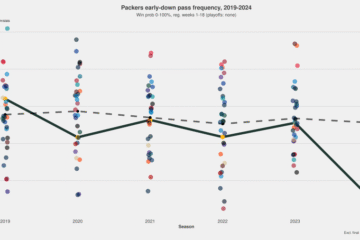Malcolm Stewart documents ‘awesome journey’ in ‘Stewart 27’ — Andscape
As his older brother ascended to legendary status in motocross racing, Malcolm Stewart enjoyed his life as a normal kid and really didn’t see himself making a living racing motorcycles.
Until he had a pivotal talk with his dad, James Stewart Sr., who bluntly laid out the direction for his son’s life.
“My dad told me, ‘If you don’t get out your ass out there and race a motorcycle, you’re going to be working an eight to five,” Stewart said. “And I told myself I should take this a little bit more seriously.”
The results of Stewart taking motocross seriously — and joining his brother, James Stewart Jr., as dominant African American riders in a white-dominated sport — are the focus of the recently released Stewart 27 documentary (streaming on Hulu). Malcolm Stewart, 32, allowed cameras to follow him through a recent two-year stretch of his highly-decorated 15-year career.
“Rockstar Energy asked me to do this documentary and explain what it takes to be a motorcycle racer at a high level,” Stewart said. “It’s all about showing the world how cool motorcycles are in one of the most overlooked sports, and to let people know that it’s not just stick and ball sports— that you can also become a professional motorcycle racer too.”

Terence Lewis/Icon Sportswire
The journey for Stewart has been historical — he and James are the only brothers in the sport’s history to win a premier class main event. That journey had an unexpected challenge once the cameras began rolling as Stewart, one month into filming, suffered a torn ACL during a practice run.
Stewart’s recovery from the injury emerged as a key storyline for the documentary.
“The injury prolonged the film,” Stewart said. “But it also opened up the door to see some behind-the-scenes stuff. They had to do the surgery, and [capturing that] made a more of a unique story.”
The process, for someone like Stewart, not used to the everyday media presence, was challenging.
“It does get a little frustrating at times because maybe you had a bad day of riding or something happened in your life or something like that, like there’s a camera in your face,” Stewart said. “But you know this is what you signed up for and I just told myself it can’t always just be sunshine and rainbows; they got to get the dark stuff too as well. I told myself not to be fake, that this documentary is about telling your life story.”
Part of that story is being thrust into a sport — with his dad’s persuasion — and trying to follow a brother whose aggressiveness on the track changed the sport, earning James Stewart Jr. the title of “The Fastest Man on the Planet.”
“You look at Bronny James, and he’s like, ‘My dad pretty much achieved every goal, and how can I ever fill those shoes?’ ” Stewart said. “So that’s kind of how I felt with my brother. How am I going to be able to fill those shoes? That’s tough.”
Not only tough for Stewart, but also overwhelming.
“You always get compared to your brother and it kind of made me want to resent my brother,” Stewart said. “It kind of made me fade away from racing. And so, when I was younger, I didn’t really care about racing.”

Frederic Timores/Eurasia Sport Images/Getty Images
Not only was Stewart able to shake that feeling of imposter syndrome when compared to his brother, he climbed to the top of his sport in February when he won his first 450SX premiere event race in Tampa (that win, unfortunately, came after filming had commenced).
In many ways, that win was special.
- Stewart got his first main event victory of his long career at home (he grew up in Bartow, Florida, about 45 miles from Tampa).
- As Stewart won the race to join his brother as the only siblings to win motocross main events, James was on the call as color commentator.
“It was a dream come true for myself and my entire family to accomplish that,” Stewart said. “And just being the first brothers to [win main events], and to have him in the booth announcing, you can’t write a better script than that.”
And for putting together that script of an amazing career, Stewart thanks his dad for providing the basis of the screenplay.
“I had some ups and downs, made a lot of great memories and friends, and I’m happy that my dad made me come to my senses,” Stewart said of that ‘eight to five’ discussion. “It’s been an awesome journey.”











